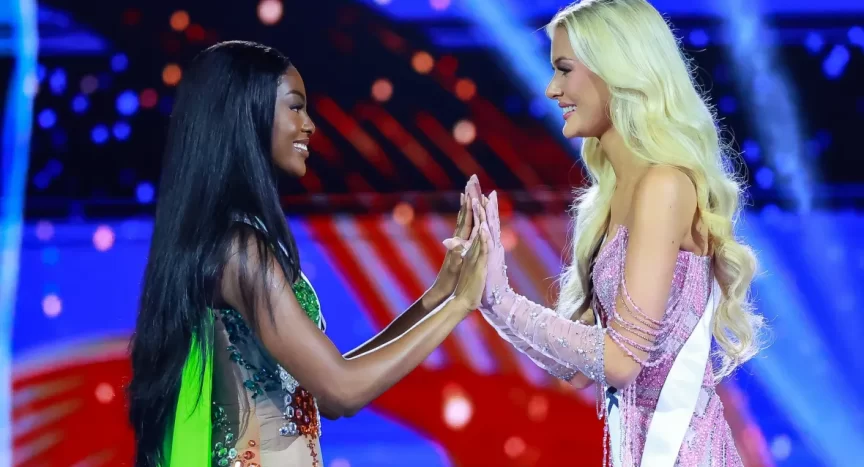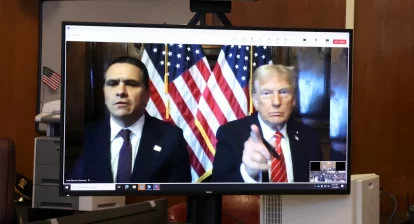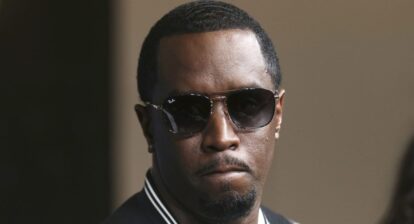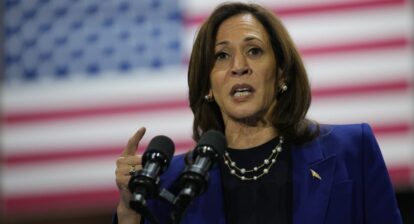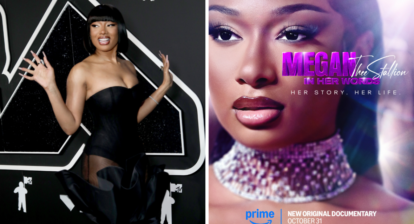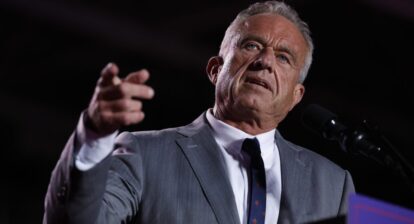An unexpectedly disturbing narrative around Miss Universe 2024 reflects a larger conversation about the decline of diversity and inclusion.
Miss Universe 2024 has officially crowned a new queen. This year’s title went to Victoria Kjaer Theilvig from Denmark, a decision that has sparked both celebration and controversy. As some lauded the pageant queen’s blonde hair and blue eyes, features long associated with Eurocentric ideals, Nigeria’s Chidimma Adetshina made headlines of her own as the pageant’s first runner-up. Celebrated for her intelligence, elegance, and the way she embodied the vibrancy of African beauty on the Miss Universe stage, the response to Adetshina’s near-win has left many questioning: Is the world ready to fully embrace diverse definitions of beauty — or are we still circling back to the same old tropes?
While both women’s achievements deserve recognition, many viewers felt Adetshina’s pageant performance — which included a thoughtful and resonant answer about the importance of respect, deserved the crown. Significantly, her presence also represented yet another step forward for African representation on the global stage. Yet, some found Adetshina’s placement as runner-up emblematic of what many recognize as subconscious bias — suggesting that even in an increasingly diverse competition, beauty standards rooted in Western ideals still dominate.
The surrounding discourse was further muddied by a polarizing tweet from Donald Trump Jr. that read: “Biological [and] objectively attractive women are allowed to win beauty pageants again. WE ARE SO BACK!!!.” On the heels of a historic, contentious and racially charged presidential election, the comment shifted attention from the pageant itself — an entity formerly owned by the Trump family — to broader questions about the evolution of diversity and inclusion in our current climate.
A Step Backwards?
Instead of weighing the merits of each contestant, the focus of the conversation is no longer about whether the winner earned her crown but rather how Theilvig’s victory has been framed as a “return” to a supposed natural order of beauty. In a press conference following Theilvig’s appointment as Miss Universe 2024, the pageant’s owner, Thai businesswoman Anne Jakrajutatip, said that the organization has reached the “best version of Miss Universe” with a blonde-haired and blue-eyed titleholder. Statements like Jakrajutatip’s and Trump Jr.’s, emphasizing a nostalgia for traditionally Eurocentric standards, have sparked discussions about the broader implications for how beauty is or should be defined.
In recent years, beauty pageants, including Miss Universe, have taken significant steps to celebrate women from diverse backgrounds. Winners such as Zozibini Tunzi of South Africa (2019) and Harnaaz Sandhu of India (2021) demonstrated that beauty is not confined to any single set of features or standards. These moments sent an important message about inclusivity, diversity and progress on a global stage. So, for Breana Turner, a seasoned pageant competitor who was crowned the first Miss Virginia Volunteer, the sudden narrative shift raises some alarms.
“I can’t help but to think that as a Black woman, who competed in [pagentry] for years [and] who always knew the odds were basically against me for several reasons,” said Turner in a TikTok video. “I can’t help but think about the message that it sends for the owner of the Miss Universe organization to say that they reached the mountaintop because they have a blonde-haired, blue-eyed winner. [Especially when] that goes against every single thing that the organization is supposed to be about right now.”
This year’s emphasis on “traditional beauty,” however, has prompted concerns about whether this moment marks a step back in the effort to expand representation. While all contestants bring their own unique strengths to the stage, the language surrounding this win has reignited conversations about who gets to define beauty and what those definitions mean for the future of representation.
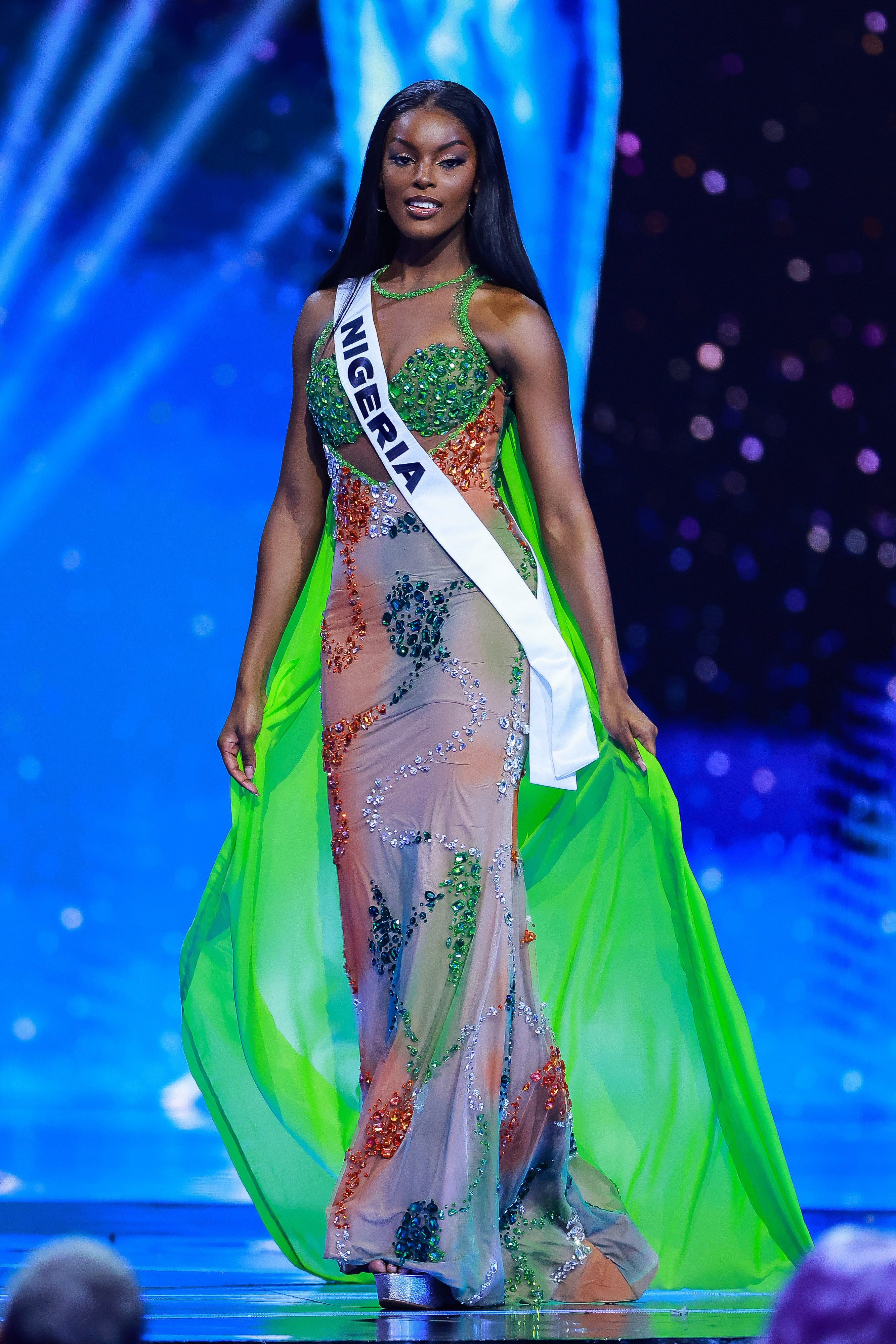
Chidimma Adetshina, Miss Nigeria
Miss Nigeria’s performance in this year’s competition stood out as a moment of brilliance that deeply resonated with viewers. Her poise and charisma earned her a well-deserved runner-up spot and widespread admiration. While she broke barriers and captured hearts, to some, her runner-up status inevitably feels bittersweet, as if further testament to the fact that even when Black women continue to embody excellence on every stage, they are often overlooked or overshadowed. However, it does not undercut the impact of Adetshina’s accomplishment.
“I’m so proud of myself, and I just made history,” she told BBC after her win.
“History has been made for Nigeria,” she later added on Instagram, per WWD. “My voice, my story touched many and brought us together. This journey has taught me the power of unity. I want us to live in a society where we can all accept and celebrate one another. This is not the end but the beginning of my journey.”
Regardless of the outcome, Adetshina’s success is a testament to the strides made in broadening representation within the pageant world. The surrounding conversations simply prove that there is far more work to be done to ensure that all forms of beauty are equally celebrated and validated.
The Bigger picture
Beyond the pageant world, this moment reflects broader implications about the current state of diversity, equity, and inclusion across industries. Beauty pageants, as cultural touchpoints, often mirror societal values. The discourse about this year’s winner raises larger questions about the current trajectory of diversity and inclusion; progressive initiatives that have already been under attack. Is there still space for these principles to be fully and further embraced, or is the resistance to progress gaining force?
!function(){var g=window;g.googletag=g.googletag||{},g.googletag.cmd=g.googletag.cmd||[],g.googletag.cmd.push(function(){g.googletag.pubads().setTargeting(“has-featured-video”,”true”)})}();
More must-reads:

